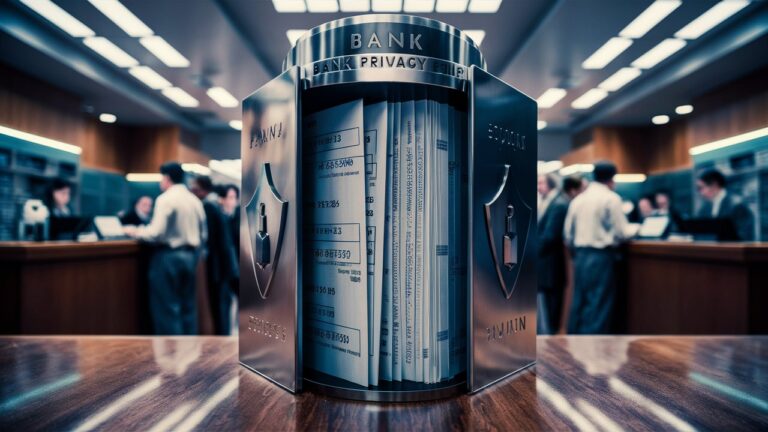In this article, we look at various aspects of banking secrecy and the reasons for its abolition in several countries around the world.
Be careful when reading information on the Internet
Be careful when reading information on websites without a date display, as these can be very outdated . The CRS member country list changes annually.
The new iron hand of the Tax authorities AMLA.The EU will soon eliminate all possibilities for optimizing taxes within EU.
Final list of participating countries (The CRS member country list)
PDF, 617KB, File Status: June 13, 2024
Is there banking secrecy in Europe?
Banking secrecy exists in Europe, but it is not absolute and is increasingly being restricted. This is mainly due to the cooperation between EU member states within the CRS (Common Reporting Standard) and OECD initiatives, the exchange of financial information is being strongly promoted. Germany plays a leading role here.
Banking secrecy: Which account information is protected?
In times of increasing global pressure for transparency and tax compliance, banking secrecy is playing an increasingly important role. But which account information is actually protected and in which countries is banking secrecy still strong?
The Common Reporting Standard (CRS), which was established by the OECD, has Banking secrecy considerably weakened in many countries. The CRS obliges banks worldwide to collect their customers' account data and pass it on to the tax authorities in their country of residence. This measure is primarily intended to combat tax evasion.
What information is exchanged:
As part of the Common Reporting Standard (CRS), various account information is exchanged between the participating countries in order to combat tax evasion. The information exchanged includes
- Name and address of the account holder
- Country of residence and tax identification number
- Date and place of birth
- Account number and name of the bank or financial institution
- Account balance and total credits in the current calendar year
- Investment income such as interest, dividends and income from certain insurance contracts
- Proceeds from the sale of financial assets
As part of the Common Reporting Standard (CRS), information on accounts with a credit balance of 0 is also exchanged. However, some special features must be taken into account:
- Obligation to report zero accounts:
Accounts with a balance of 0 must always be reported unless they have been closed. This serves the purpose of seamless monitoring and is intended to prevent potential tax evasion. - Exceptions for certain account types:
There are exceptions for certain types of accounts. For example, inactive accounts or accounts with very small balances may be exempt from the reporting obligation under certain circumstances. - Relevance of account movements:
Even if an account has a zero balance on the reporting date, the account movements during the reporting period may be relevant. In particular, the total amount of credits in the current calendar year is reported as part of the CRS. - Purpose of the comprehensive reporting:
The purpose of reporting zero accounts is to obtain a complete picture of a taxpayer's financial situation and to uncover possible tax avoidance strategies.
The information is collected by the financial institutions in the country of origin and forwarded to the competent tax authorities, which then transmit it to the tax authorities of the account holder's country of residence.
Countries with banking secrecy, by not participating in the CRS:
Despite the widespread implementation of the CRS, there are some countries that do not participate and therefore still offer a degree of banking secrecy. Here are some of these countries and what they offer in terms of banking secrecy:
- ArmeniaThe banking system here still offers a high level of protection for account information. The interest rates are attractive and opening an account is straightforward.
- BotswanaIn this stable African country, the banking systems are robust and offer a high degree of discretion, although the infrastructure is well developed.
- Dominican RepublicThis Caribbean nation offers a variety of banking services that do not fall under the CRS, allowing a high degree of privacy to be maintained.
- GeorgiaAlthough Georgia will participate in the CRS from 2023, some banks still offer strong data protection measures, especially for older accounts.
- GuatemalaAlthough not the safest country, the banks there offer a good alternative in terms of CRS for people who value data protection.
- CambodiaThis Asian country has developed into an up-and-coming financial center in recent years, attracting a lot of capital even without CRS.
- North MacedoniaWith a business-friendly climate and a growing banking sector, North Macedonia offers another option for those wishing to avoid the CRS.
- PhilippinesThe Philippines also offers a high level of discretion through its banking system, mainly because it is not yet fully integrated into the CRS.
- United States: The USA is perhaps the most prominent non-CRS country. Ironically, although the USA has the FATCA which leads to the one-sided exchange of bank data (US LLC bank accounts are not affected by the bilateral FATCA agreement), but they themselves do not participate in the CRS. Especially in states like Wyoming and Nevada customers can benefit from robust banking secrecy.
Exemption from banking secrecy in Germany
Banking secrecy in Germany has been subject to a gradual dismantling for years. Since 2017, authorities have been able to obtain information on bank accounts and safe deposit boxes via the automatic account retrieval procedure. Banking secrecy can be lifted in the course of investigations or by court order.
Are the contents of safe deposit boxes in German/European banks secret?
Although banking secrecy in Germany and Europe offers a certain degree of protection for safe deposit box contents, it is not absolute. The contents of safe deposit boxes are accessible to authorities under certain circumstances, particularly in the case of criminal investigations or suspected tax evasion.
How do banks protect the contents of safe deposit boxes?
German banks are legally obliged to protect safe deposit boxes and their contents. However, there are exceptions, such as in the case of court orders or investigations, where the contents of a safe deposit box may be disclosed.
How is banking secrecy implemented in criminal proceedings?
Banking secrecy is severely restricted in criminal proceedings. Bank employees have no right to refuse to testify and are obliged to give evidence in court. Searches and seizures are also possible, but usually only with a court order.
Are there exceptions to banking secrecy for safe deposit boxes?
Yes, bank secrecy for safe deposit boxes can be lifted under certain circumstances, particularly in the case of criminal investigations or in the event of the death of the safe deposit box holder.
How does the security of safe deposit boxes in German banks work?
Safe deposit boxes in German banks are secured by contractual agreements, technical security measures and a legal framework designed to restrict access by third parties.
Can the police see the contents of a safe deposit box without a court order?
No, the police usually need a court order to search the contents of a safe deposit box. Unless there is acute imminent danger.
Which banks offer the best protection conditions for safe deposit boxes?
Private safe deposit box providers often offer more discretion and protection than traditional banks, as they operate independently of banks and are subject to fewer reporting requirements.
I need a business account with bank secrecy!
Form an LLC in the USA that also offers you tax advantages in your country of residence. With a US LLC, you get a business account in the United States that offers bank secrecy and is outside the CRS and FATCA regulations. Ensure your business is conducted with due data protection. Contact us today for a Non-binding, free consultation with an expert.













